Bihar – The RJD Bihar Roll Revision Conflict has escalated dramatically as Tejashwi Yadav’s Rashtriya Janata Dal approaches the Supreme Court to challenge the Election Commission’s controversial decision to conduct a Special Intensive Revision of electoral rolls in Bihar. This political battle has emerged just months before the state’s crucial assembly elections, creating a significant constitutional crisis that threatens to impact millions of voters.
Background of the RJD Bihar Roll Revision Conflict
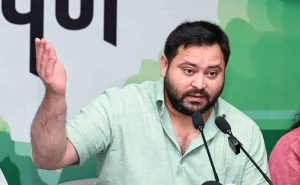
The RJD Bihar Roll Revision Conflict began when the Election Commission of India issued instructions on June 24, 2025, directing a comprehensive Special Intensive Revision (SIR) of Bihar’s electoral rolls. This unprecedented move affects approximately eight crore voters and must be completed by July 25, 2025. The timing of this exercise, coming just before the Bihar assembly polls scheduled for later this year, has sparked intense political debate and legal challenges.
The RJD Bihar Roll Revision Conflict centers around the Election Commission’s decision to conduct this revision exclusively in Bihar, despite the fact that the previous nationwide revision occurred in 2003. Opposition leaders, particularly Tejashwi Yadav, have questioned the selective nature of this exercise and its potential impact on voter participation in the upcoming elections.
Supreme Court Challenge Details
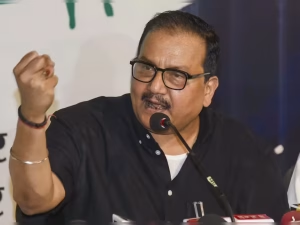
RJD Member of Parliament Manoj Jha has formally challenged the Election Commission’s move in the Supreme Court, representing the party’s position in the RJD Bihar Roll Revision Conflict. The legal challenge argues that the timing and scope of the electoral roll revision appear designed to disenfranchise legitimate voters, particularly those from marginalized communities who may face difficulties in completing the required documentation within the stipulated timeframe.
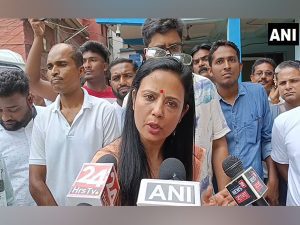

The RJD Bihar Roll Revision Conflict has gained additional momentum with Trinamool Congress leader Mahua Moitra also approaching the Supreme Court. Moitra has alleged that the revision exercise is specifically designed to prevent bonafide young voters from participating in Bihar’s assembly elections, suggesting a broader pattern of electoral manipulation.
Political Opposition and Criticism
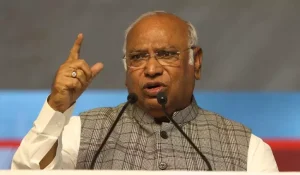

The RJD Bihar Roll Revision Conflict has united various opposition parties in criticism of the Election Commission’s decision. Congress President Mallikarjun Kharge has characterized the move as a “conspiracy by BJP-RSS to snatch away the voting rights of Dalits and other deprived sections.” This accusation has added a communal dimension to the RJD Bihar Roll Revision Conflict, with opposition parties arguing that the revision disproportionately affects vulnerable communities.
Tejashwi Yadav, as the leader of the opposition in Bihar’s state assembly, has been particularly vocal in questioning the rationale behind conducting the revision only in Bihar. His concerns about the RJD Bihar Roll Revision Conflict focus on the potential for voter suppression and the lack of transparency in the Election Commission’s decision-making process.
Election Commission’s Response
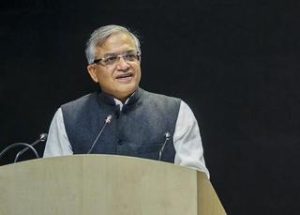

Despite the mounting controversy surrounding the RJD Bihar Roll Revision Conflict, the Election Commission has maintained its position that the revision is proceeding smoothly at the ground level. The poll body has asserted that there is “no change” in the instructions regarding the implementation of the special intensive revision, emphasizing that the exercise aims to remove ineligible voters from the electoral rolls.
Bihar’s Chief Electoral Officer has attempted to address concerns related to the RJD Bihar Roll Revision Conflict through social media posts, explaining that the draft electoral rolls will be issued on August 1, 2025, containing names of existing electors whose enumeration forms are received. The officer has assured that all measures are being taken to facilitate existing electors in completing the required documentation.
Impact on Upcoming Elections
The RJD Bihar Roll Revision Conflict has significant implications for the upcoming Bihar assembly elections. With approximately eight crore voters potentially affected by the revision process, the outcome of this legal and political battle could determine the electoral landscape in one of India’s most politically significant states.
The timing of the RJD Bihar Roll Revision Conflict has raised questions about the Election Commission’s neutrality and independence. Opposition parties argue that conducting such a comprehensive revision just months before crucial state elections appears politically motivated and could undermine democratic participation.
Broader Constitutional Questions
The RJD Bihar Roll Revision Conflict has raised fundamental questions about electoral governance and constitutional propriety. The selective application of the revision process to Bihar alone, despite other states having similar or older electoral rolls, has prompted legal experts to question whether the Election Commission has exceeded its constitutional mandate.
The RJD Bihar Roll Revision Conflict also highlights the ongoing tension between ensuring electoral integrity and protecting voting rights. While the Election Commission maintains that the revision aims to improve the accuracy of voter rolls, opposition parties argue that the process could disenfranchise legitimate voters, particularly those from marginalized communities who may struggle with documentation requirements.
Future Implications
As the RJD Bihar Roll Revision Conflict moves through the Supreme Court, its resolution will likely set important precedents for electoral governance in India. The court’s decision could influence how future electoral roll revisions are conducted and establish clearer guidelines for the timing and scope of such exercises.
The outcome of this legal challenge will significantly impact not only Bihar’s political landscape but also the broader framework of electoral administration in India. The Supreme Court’s intervention in the RJD Bihar Roll Revision Conflict represents a crucial moment in defining the balance between electoral integrity and democratic participation.
The resolution of this controversy will ultimately determine whether the Election Commission’s revision process proceeds as planned or whether the courts will intervene to protect voters’ rights in Bihar’s upcoming assembly elections.

